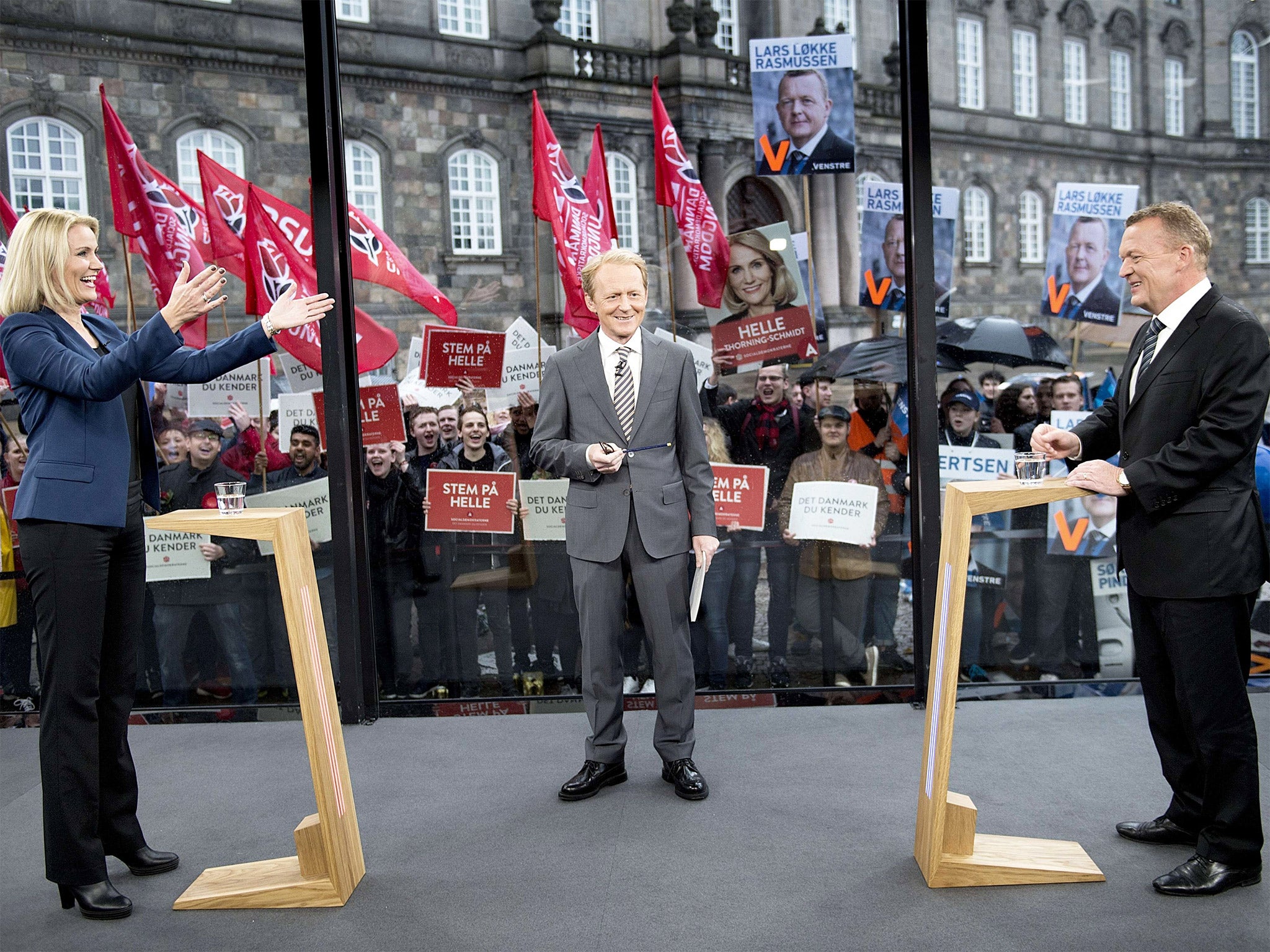Danish election: Centre-right Venstre opposition leader Lars Lokke Rasmussen celebrates victory
Opposition coalition won 51.5 per cent of the vote

Your support helps us to tell the story
From reproductive rights to climate change to Big Tech, The Independent is on the ground when the story is developing. Whether it's investigating the financials of Elon Musk's pro-Trump PAC or producing our latest documentary, 'The A Word', which shines a light on the American women fighting for reproductive rights, we know how important it is to parse out the facts from the messaging.
At such a critical moment in US history, we need reporters on the ground. Your donation allows us to keep sending journalists to speak to both sides of the story.
The Independent is trusted by Americans across the entire political spectrum. And unlike many other quality news outlets, we choose not to lock Americans out of our reporting and analysis with paywalls. We believe quality journalism should be available to everyone, paid for by those who can afford it.
Your support makes all the difference.The opposition parties in Denmark scored a narrow victory last night over the centre-left coalition in the country’s general election.
The opposition bloc, led by former Prime Minister Lars Lokke Rasmussen of the centre-right party Venstre, gained 90 seats in Parliament, Reuters reported.
The ruling Social Democratic Party won 85 seats after the mainland votes were counted. Its leader, Helle Thorning-Schmidt, who is the country’s first female Prime Minister, announced that she would step down from her position following the defeat.
The opposition bloc was helped to victory by the right-wing Danish People’s Party (DF). The party, which is anti-immigration and Eurosceptic, won 21 per cent vote, leading the bloc to gain 51.5 per cent of the votes, AP reported.
Lokke Rasmussen nominated himself to be head of the government while he was addressing his supporters in parliament. He said: “Tonight we have been given an opportunity, but only an opportunity, to take leadership in Denmark.”
“We take that upon ourselves and I take that upon myself… What I offer today is to put myself as the head of the government.”
It is unclear whether DF, the second biggest political party after the Social Democratic Party, will join a government.
Reuters reported that leader, Kristian Thulesen Dahl, said: “What we have said before the election is also what we will follow after the election – that we will be where the political influence is greatest.”
“If that is in government, then that is where we will be. If it is outside of the government, then that is where we will be. That is the driver for us, not ministerial titles.”
Ahead of the vote, British Prime Minister David Cameron received support from Denmark’s opposition parties over bids to reform the European Union.
Join our commenting forum
Join thought-provoking conversations, follow other Independent readers and see their replies
Comments